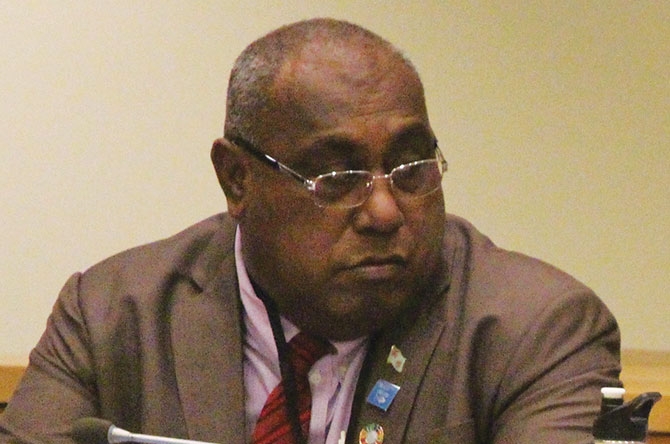Fiji calls for understanding
By NETANI RIKA, Pasay City, the Philippines
AS the self-nominated representative for Small Island Developing States, Fiji has found itself in a position where it may have to fight a lone battle for tuna conservation.
The 14th Western and Central Pacific Fisheries Commission meeting this year appears no closer to agreeing on uniform conservation measures as national priorities outweigh regional obligations.
Fiji – as a signatory to the Tokelau Agreement on South Pacific Albacore – has agreed to limit its catch to 12,000 tonnes per year, a drop of 2000 tonnes.
“That is our commitment to the region and the need to ensure sustainable fisheries so that all countries can benefit,” said Fiji Fisheries Minister, Commander Semi Koroilavesau.
“Fiji has taken drastic measures to reduce our catch. We’ve accepted the cuts because they are necessary but (other countries) do not agree to cuts.
“We understand their difficulties. Their budgets are based on their fisheries industry which can make up 50 to 60 per cent of annual national budgets.”
In the spirit of the Tuna Commission (WCPFC), Koroilavesau is reluctant to name the offending nations but his reference is to Tuvalu and Kiribati, tuna-rich countries to Fiji’s north.
In 2015 year the Fiji fleet caught 7608 tonnes worth USD30 million.
By comparison over the same period Kiribati took in 149,314 tonnes worth USD233 million.
The total catch in Kiribati’s waters, including that caught by its foreign fleet, came to 641,119 tonnes worth a staggering $911million.
Tuvalu’s fleet caught 5175 tonnes worth USD9 million while the total catch in its waters came to 80,205 tonnes worth USD103 million.
“On the side lines of this and other meetings Fiji has been asking for some consideration so that we can also benefit from tuna fisheries but we can’t force anyone,” Koroilavesau said.
“The tuna that comes into Fiji waters travels from the north so we fully support the closure of Fish Aggregating Devices (FADS) for three months and a cap on the harvests by national fleets.’’
A FAD is a man-made object used to attract ocean going pelagic fish. Over 300 species of fish gather around FADs.
Some countries at the WCPFC have expressed reluctance to adhere to catch limitations and the closure of FADs, among them Kiribati.
Koroilavesau admitted that there was tension within the membership over the issue of FADs and harvesting.
“These issues have been pending for some years and we are hoping for a conclusion and some compromise,” the former navy officer said.
“We need consensus to agree on the basic facts of issues facing the commission.”
Koroilavesau said that despite the strong objections of other nations he remained optimistic.
“It’s important that there is support for limits, especially for a country like Fiji which relies on fish which travel through the waters of other sovereign nations before reaching us,” he said.
“If our neighbour agreed to limitations that would lead to an increase in the number of fish which we can harvest.
“A three-month FAD closure – and it looks like Kiribati has agreed to that – will have a huge impact on our stocks and the fisheries industry at home.”
That closure signals a shift in Kiribati’s stance on day one at the 14th WCPFC when Fisheries Minister, Tetabo Nakara highlighted the impact such a limitation would have on his country.
“Access fees from tuna fishing contributes more than 80 per cent toward the total government’s annual expenditure that supports, amongst others, crucial funding for our education system, medical care, other basic needs that the government is obligated to deliver as services to its 110,000 inhabitants, as well as salaries of civil servants,” he said.
With two days of talks remaining, it’s unclear how many other countries will be willing to make concessions.
